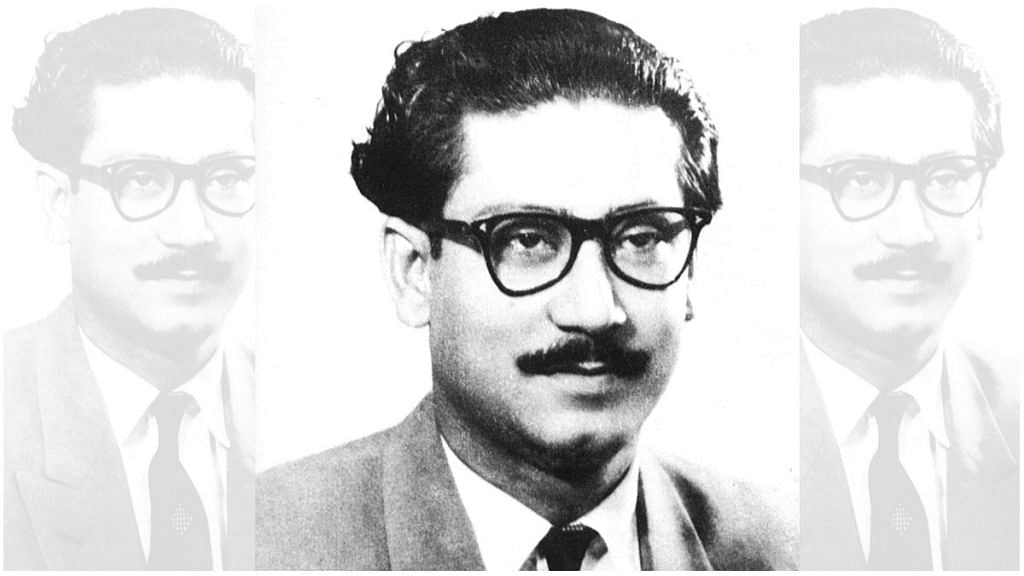By honouring the Sultan of Oman, the late Qaboos bin Said bin Taimur al Said, and Bangabandhu Sheikh Mujibur Rahman with the Gandhi peace prize for 2019 and 2020, respectively, Prime Minister Narendra Modi is clearly indicating that he won’t let his foreign policy be hijacked by domestic politics.
Moreover, by honouring Mujib, 50 years after the birth of Bangladesh, Modi – who heads the Gandhi peace prize jury – is also showing that he is completing the task that the Congress-led governments forgot to do over the last 50 years.
Also read: Stop seeing Bangladesh as ‘East Pakistan’. Last 50 years are a missed opportunity
India’s diplomatic past
India never bothered to award Mujib — either with the Gandhi peace prize or the Jawaharlal Nehru Award for International Understanding — during the four years he was alive after the creation of Bangladesh.
By August 1975, Mujib was dead – the Jawaharlal Nehru award for that year went to Jonas Salk, the US virologist who created the polio vaccine.
Modi must be given credit for resurrecting the Jawaharlal Nehru award for international understanding by awarding the Omani Sultan with the Gandhi peace prize. Evidently, the announcement for the 2004 version of the Nehru award was made in 2007 by the Manmohan Singh government.
Another attempt to honour the reclusive Sultan was made in 2012, by inviting him as chief guest for India’s Republic Day ceremonies — evidently, both countries had agreed on all the bombast, but then the Sultan announced one day that he wasn’t coming.
So, India scurried to Bhutan, its best friend and neighbour, to bail it out – and Jigme Khesar Namgyal Wangchuk agreed to save face for Delhi and the Manmohan Singh government.
So much better not to ask anyone at all – like earlier this year, when UK Prime Minister Boris Johnson was invited to the 26 January celebrations, but cancelled at the last minute because of the deteriorating Covid-19 situation.
The Gandhi peace prize is India’s most coveted award, with a cash prize of Rs 1 crore (10 million), while the Nehru award is worth Rs 25 lakh. And while both awards have primarily been given to foreigners, there are some exceptions to the rule – the Gandhi peace prize has been given to both the Akshaya Patra foundation as well as the RSS-run Ekal Vidyalaya Sangathan.
But it is the award given to Mujib that is of some significance. Not only is Modi laying claim to Indira Gandhi’s legacy with regards to the Bangladeshi statesman, he has also dropped all mention of the contentious National Register of Citizens and Citizenship (Amendment) Act in the ongoing Assam and West Bengal elections. It isn’t clear whether he is dispensing with them altogether or this is just temporary.
Also read: No Bangladeshis, no Pakistan, no terrorism. Why Modi-Shah BJP has changed its poll pitch
India-Bangladesh ties
As the Bangladeshi foreign minister Dr AK Abdul Momen told me in an exclusive interview, none other than Prime Minister Sheikh Hasina had asked PM Modi about CAA-NRC while visiting India two years ago.
Whatever profit was being accrued on the home political front, Modi decided that the relationship with Bangladesh is too precious to be damaged again. He knows that if he and the BJP go down the CAA-NRC road again, at least as far as it affects Assam and West Bengal, and neighbours of Bangladesh, it will impact his relationship with Hasina.
Home Minister Amit Shah’s description of so-called Bangladeshi infiltrators as “termites” was met by a derisive laugh by Abdul Momen. “We are not termites,” he said in the same interview.
Of course not. Modi is sending a message that he will not allow the India-Bangladesh relationship to be damaged.
At the same time, External Affairs Minister S. Jaishankar is unlikely to meet his counterpart, Shah Mehmood Qureshi of Pakistan. The meeting has neither been accepted nor conveyed – at the ongoing Heart of Asia meeting in Istanbul — to discuss the way forward in Afghanistan.
In the wake of the Pakistan army chief General Qamar Javed Bajwa’s peace moves, it was speculated that the two foreign ministers would meet to take this process further, but Modi has shown no signs of bending.
Perhaps Modi is laying store by the fact that his improved relationship with the US has given him a new clarity, focus, and swagger in India’s neighbourhood. It has also allowed him a spot on the Afghan table – neither Pakistan, nor its patron China would have wanted it. From Dushanbe, Jaishankar will go to Istanbul for a new round of intra-Afghan talks, where the US will also announce a new exit plan for its remaining 2,000 troops by 1 May.
Views are personal.
